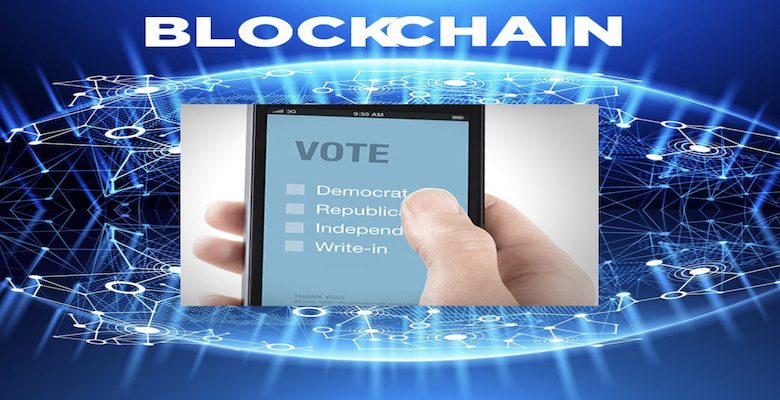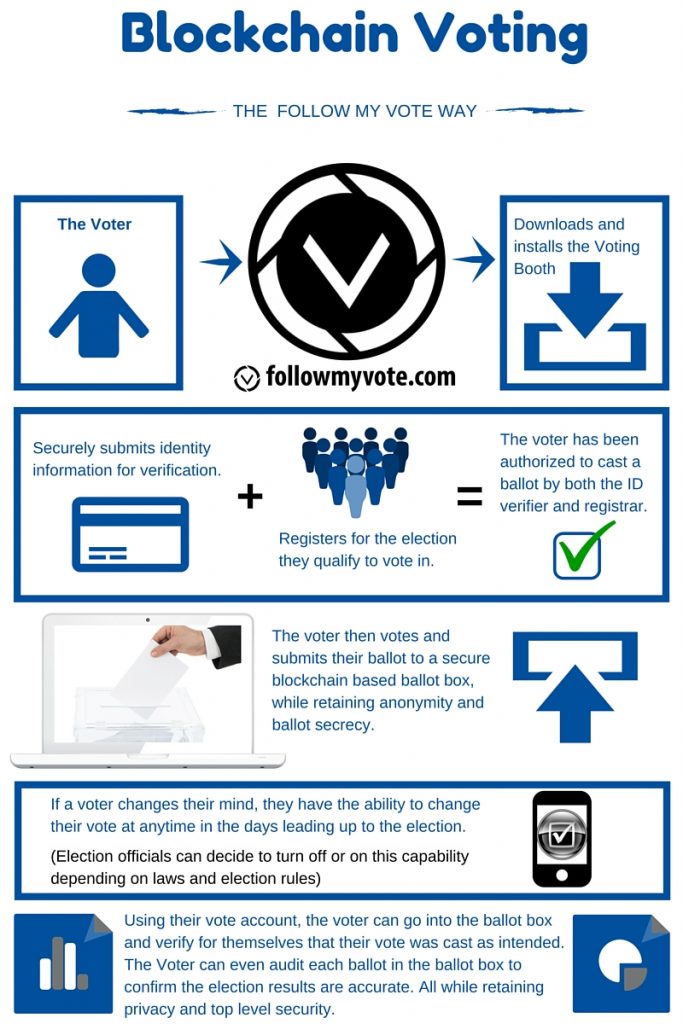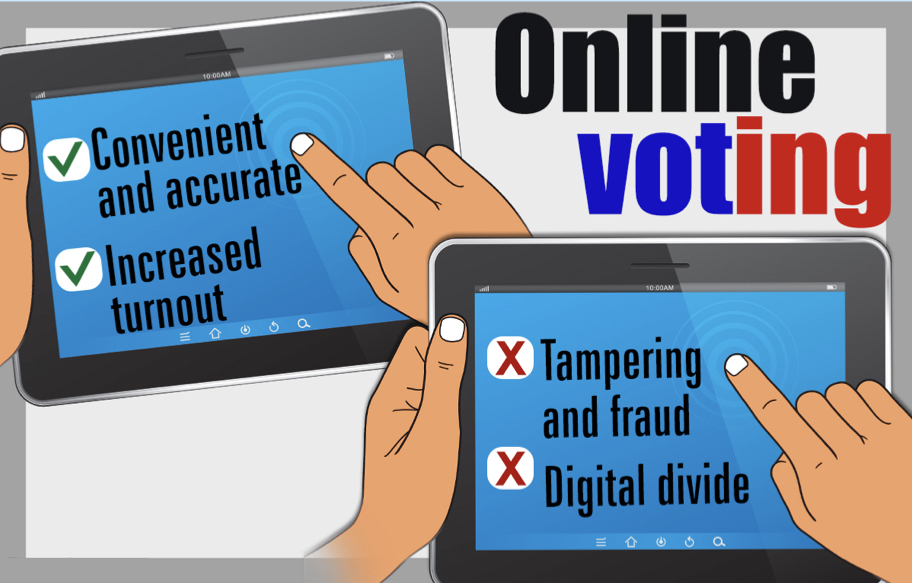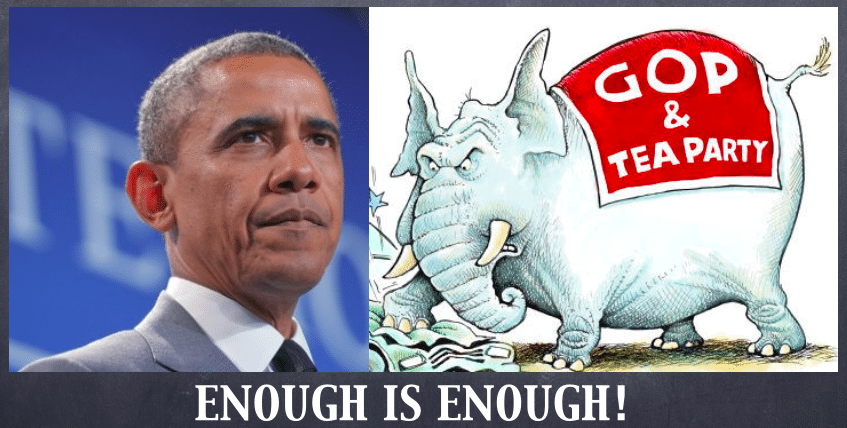Online Voting Coming Soon To US Phones?

Voter apathy has been a decades-long problem in getting lazy Americans off their sofas and into their polling places to vote. However, at least 1 state thinks it may just have the solution: Online Voting.
Politics
As of today, West Virginia is the first state in US history to offer online voting via a smartphone app. The state has begun initial testing with its residents living overseas or serving in the military or in the Merchant Marine. However, if successful, online voting will be expanded to include all WV residents and potentially other states.
West Virginia will employ blockchain technology, which is a system for securely sharing a database of records across a network of computers. Advocates of blockchain claim the technology creates a foundation to enable voting by phone, can resist data tampering, and can generate an instant audit to verify election results.

The testing is being made possible by the US government’s Uniformed and Overseas Citizens Absentee Voting Act (UOCAVA), which allows eligible voters to cast ballots via any form of electronic transmission, including fax or email.
“We want our voters to know that we’re doing everything we can to give our uniformed services members and overseas citizens the same ease of access to a ballot that we get stateside,” said Donald “Deak” Kersey, West Virginia’s elections officer and Warner’s deputy legal counsel.
“We don’t want to do anything that’s irresponsible,” Kersey continued, adding, “so we’re testing this technology now in this very limited scope, just to make sure it’s secure.”
In a world firmly planted in the digital age, ditching in-person paper votes for digital online ones may very well be the next natural step. After all, we bank digitally, deposit checks online (without having to physically go to the bank), and even sign contracts and other important documents digitally. Additionally, many US states have already started the switch to a digital drivers license carried on a cellphone. Even the US government is testing a digital passport for cellphone access as well. So why not online voting?
Let’s take a look at both sides of the coin.

.
CON
According to some tech experts, performing your civic duty from your couch is fraught with security concerns that could ultimately undermine an US election and quite possibly affect the outcome of a race. They also say there is a huge possibility that a major breach could place private voter information directly into the hands of hackers.
“If we haven’t assured the voter that their vote is going to be protected, that’s as big a problem as actually being at risk,” warned Eric Hodge, director of election security services at CyberScout, which works with state and county officials to secure electronic elections.
He added that because maintaining the integrity of US elections is already hard enough as it is, we would only be complicating matters further with online voting — which would be the equivalent of handing a crook a full set of keys to your home before going out of town for 2 weeks.
.
PRO
 Those in favor of online voting are actively promoting its appeal for a variety of reasons. For one, voter turnout in the US is notoriously low (about 56% of the voting-age population cast a ballot in 2016), so making voting more convenient could boost those numbers. Online voting could also help enfranchise people who might be too sick to travel, are nursing a newborn, or simply can’t afford to take time off from work.
Those in favor of online voting are actively promoting its appeal for a variety of reasons. For one, voter turnout in the US is notoriously low (about 56% of the voting-age population cast a ballot in 2016), so making voting more convenient could boost those numbers. Online voting could also help enfranchise people who might be too sick to travel, are nursing a newborn, or simply can’t afford to take time off from work.
Proponents say current vote counting machines are already hackable, so to continue with the old voting system does nothing to eliminate electoral attacks.
“Mobile voting using a safe and tested interface could eliminate voter fraud and boost turnout,” a Brookings Institution think tank concluded last May. “It is also a beneficial tool for the election commission to maintain transparency in the electoral process, minimize the cost of conducting elections, streamline the process of counting votes and ensure that all votes are counted.”
Benefits of Blockchain (Online Voting)
- Voters can verify their vote was cast as intended and instantly detect tampering.
- Governments and independent outside parties can confirm the vote results stored on the blockchain for better election transparency.
- With decentralized blockchain databases, in which voting data is distributed across many servers, it’s harder to destroy or alter results by hacking a single central system.

After all, if security services are able to prevent crooks from accessing and draining Americans’ bank accounts daily, then security services must also be able to prevent crooks from accessing and altering online voting.
Is it time for America to step out of the stone age and at least give serious consideration to online voting — if for no other reason than to increase voter participation to near 100% and put an end to apathy?






Hmmm. I guess We really have become a *Lazy* nation haven’t we?
I’m not feeling the idea of “online voting”…at least not yet anyway. I agree with the reasons outlined under “CON.” So I think a lot more time, and definitely a lot more testing, is needed.
…and then we’ll see.
And on a related note……
Just want to share that by 6:40 AM, I was up, dressed, out the door and standing 3rd in line (behind my cousin an her husband) waiting to vote this morning. We were the only ones there for about 3 minutes and then it was if the floodgates opened. In no time at all quite a long line of voters had formed.
I’m cautiously optimistic that that is a good sign that voter participation will be higher than usual for this mid-term elections -that usually bodes well for the Dems. But we shall see.
I’m with Truth I am a little nervous about online voting. But if they can make sure it is secure like online banking then why not. On my way to vote right now.